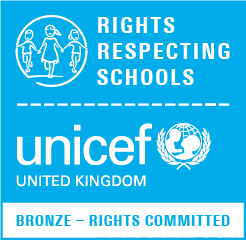Use of Government Funding
Pupil Premium Statement
pupil premium statement autumn 2023.pdf
Use of the 16 - 19 Tuition Fund
Bordseley Green Girls’ Sixth Form's statement on how it is using the 16-19 Tuition Fund from September 2021
Summary
The 16 to 19 tuition fund is ring-fenced funding for schools, colleges and all other 16 to 19 institutions who receive annual funding allocations from ESFA for the provision of 16 to 19 education, to mitigate the disruption to learning arising from coronavirus (COVID-19).
Supporting students
The funding is to support small group tuition for students aged 16 to 19 in English, Maths and other subjects that have been disrupted, including vocational and/or academic learning. Students aged 19 to 24 who have an education, health and care (EHC) plan are also eligible for support. All students must be on a 16 to 19 study programme and the funding should be used to support the tuition activity above and beyond the programmes of education already planned. It is for students who:
- have not achieved a grade 4 or 5 in English and/or maths
- have a grade 4 or above in English and/or maths, are from an economically disadvantaged background and would need catch-up support. These are defined as students from the 27% most economically deprived areas of the country based on the index of multiple deprivation
- will benefit most from small group tuition, and particular regard is being given to the requirements of disadvantaged students and students with special educational needs and disabilities (SEND).
Bordesley Green Girls’ School and Sixth Form has committed to using the Tuition Fund that the ESFA has made available.
Examples of some of the support that Bordesley Green Girls’ will be offering are:
- Support for SEND and High Needs students
- Vocational and / or Technical support where assessments were deferred
- Vocational and / or Technical catch-up sessions for knowledge and practical skills development
- 1 to 1 study skills sessions to support academic progress
- SEND support to catch up on vocational and academic skills and skills and learning that are import for preparation for adulthood
Implementation
Bordesley Green Girls’ will use the funding as follows:
- Continued employment of an academic mentor specifically focused on disadvantaged and vulnerable 16-19 year olds impacted by the COVID-19 pandemic.
- Recruiting a number of tutors and learning support staff across the school to work with students in small groups to support teaching and learning.
- Increasing the hours of some existing tutors and teaching assistants.
- Small groups will contain no more than 5 learners (or 7 learners in exceptional circumstances), with the ambition of having no more than 3 learners in each group.
- Run 1 to 1 or small group sessions in addition to the existing timetabled hours, where appropriate and beneficial to the learner.
- Support sessions will be prioritised for the following students:
- Those with an Education, Health and Care (EHC) Plan
- Those 16-18 year old learners with a Special Educational Needs and Disabilities (SEND)
- Those who have a grade 4 or below in GCSE Maths and/or English
- Those students most disadvantaged (from the 27% most economically deprived areas of the country based on the index of multiple deprivation)
- Those classed as vulnerable or impacted most by the pandemic.
The School is committed to ensuring the tuition fund is used in accordance with the Government’s guidance on the 16-19 tuition fund by:
- Producing this statement setting out how the fund will be used to support the most disadvantaged students
- Publishing the guidance on the school’s website
- Recording the use of the fund, including references to individual students who receive support, the needs of those students, the number of hours of tuition delivered and retaining the evidence of the tuition provided.
- Delivering the extra tuition and spending of the associated funding in the 2021 to 2022 academic year.
- Notifying the Education Skills Funding Agency (ESFA) of any underspend from the Fund for it to be reclaimed.
ESFA guidance related to the 16 to 19 tuition fund is available here:
16 to 19 funding: 16 to 19 tuition fund - GOV.UK (www.gov.uk)
CATCH-UP PREMIUM AND CURRICULUM EXPECTATIONS
Funding to help students make up for lost learning.
Children and young people across the country have experienced unprecedented disruption to their education as a result of coronavirus (COVID-19). Those from the most vulnerable and disadvantaged backgrounds will be among those hardest hit. The aggregate impact of lost time in education has been substantial, and the scale of our response must match the scale of the challenge.
The government announced £1 billion of funding to support children and young people to catch up. This includes a one-off universal £650 million catch-up premium for the 2020 to 2021 academic year to ensure that schools have the support they need to help all pupils make up for lost teaching time.
Although all children have had their education disrupted by the coronavirus (COVID-19) outbreak, it is likely that disadvantaged and vulnerable groups will have been hardest hit. That is why, alongside the universal catch-up premium, there is also an allocation of £350 million for a National Tutoring Programme, to provide additional, targeted support for those children and young people who need the most help.
The Education Endowment Foundation has published guidance on effective interventions to support schools.
The DfE has also set out the following curriculum expectations, to ensure that all pupils – particularly disadvantaged, SEND and vulnerable pupils – are given the catch-up support needed to make substantial progress by the end of the academic year:
Education is not optional
All pupils receive a high-quality education that promotes their development and prepares them for the opportunities, responsibilities and experiences of later life.
and
The curriculum remains broad and ambitious
All pupils continue to be taught a wide range of subjects, maintaining their choices for further study and employment.
Remote education:
The DfE asks that schools meet the following key expectations:
- Teach an ambitious and broad curriculum in all subjects from the start of the autumn term, but make use of existing flexibilities to create time to cover the most important missed content. In particular, schools may consider how all subjects can contribute to the filling of gaps in core knowledge, for example through an emphasis on reading.
- Aim to return to the school’s normal curriculum in all subjects by summer term 2021.
- Plan on the basis of the educational needs of pupils. Curriculum planning should be informed by an assessment of pupils’ starting points and addressing the gaps in their knowledge and skills.
- Develop remote education so that it is integrated into school curriculum planning.
Schools should set out how they will allocate the additional funding to support curriculum recovery this academic year. The EEF guidance suggests a 3-tiered* approach:
1Teaching
- High-quality teaching for all
- Effective diagnostic assessment
- Supporting remote learning
- Focusing on professional development
2Targeted academic support
- High-quality one to one and small group tuition
- Teaching Assistants and targeted support 1
- Academic tutoring
- Planning for pupils with Special Educational Needs and Disabilities (SEND)
3Wider strategies
- Supporting pupils’ social, emotional and behavioural needs
- Planning carefully for adopting a Social and Emotional Learning curriculum
- Communicating with and supporting parents
- Supporting parents with pupils of different ages
- Successful implementation in challenging times













